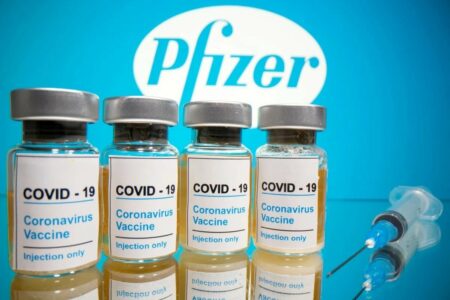Director-General of the International Vaccine Institute revealed that Jerome King revealed that there are currently more than 180 coronavirus vaccine candidates worldwide. The research and development of the novel coronavirus vaccine is carried out globally, and so is its production. It needs to produce 16 billion doses of vaccine globally.
COVID-19 poses challenges to economic globalization. The World Bank had predicted that the total cost of the pandemic in the 21st century would reach $6 trillion. “Now we know that this number is underestimated.” Jerome King says IMF estimates that COVID-19 has now cost $28 trillion in global damage. He believes that globalization has huge advantages, but under the influence of COVID-19, globalization has also brought huge costs.
On the COVID-19 vaccine, he shared the latest progress. “There are more than 180 vaccine candidates now, and we finally see hope to prevent infection or disease.” The PPT he showed listed three companies, of which Pfizer/BioNTech had a vaccine effectiveness of 95%; the Russian company Gamaleya had a vaccine effectiveness of 92%; and Moderna had a vaccine had a vaccine had a vaccine effectiveness of 94.5 percent.
Jerome King also mentioned the titration of neutralizing antibodies in some vaccines. Neutralizing antibodies are a kind of antibodies. They are proteins produced by the immune system that resist infection. They can bind and inactivate viruses. They are a defensive response of the immune system.
He revealed that the vaccine entering phase III clinically produces three different levels of neutralizing antibodies, and our assumption is that the more neutralizing antibodies the better. The lowest titers of Concinol, Kochen Bio, and Gmaleya are detectable but below 100; neutralizing antibodies in J&J, AstraZ, and Pfizer vaccines range from 100 to 500; and neutralizing antibodies in Moderna and Novavax vaccines have titers greater than 1000.
In terms of data over two months, he mentioned that at least three companies, Gamaleya, Pfizer/Biontech and Moderna, have vaccine effectiveness of more than 90% and are safe. This proves that the vaccine is potentially able to fight against COVID-19. For Moderna and Pfizer/Biontech, they developed an RNA vaccine against COVID-19, proving the concept that an RNA vaccine can fight infectious diseases for the first time.
In terms of vaccine research and development investment, the U.S. government has invested $18 billion in vaccine research and development so far, which has begun to bear fruit. The Epidemic Prevention Innovation Alliance (CEPI) also provided $1.4 billion for the development of a global COVID-19 vaccine. Some countries and organizations have jointly raised funds, which are not only invested in the research and development of the COVID-19 vaccine, but also hope to be used globally after successful research and development, and sell the vaccine at a reasonable price. The international mechanism for distributing vaccines is also the COVID-19 Vaccine Implementation Program (COVAX), an innovative alliance led by WHO, the Global Alliance for Vaccines and Immunization (GAVI) and CEPI to prevent epidemics, which hopes to provide innovative vaccines to low- and middle-income countries/regions.
Jerome King also mentioned that more than 190 countries have joined the COVID-19 vaccine implementation plan, coordinated by the Global Alliance for Vaccines and Immunization under the “Get the Tool Accelerator to Fight COVID-19” project. The plan promises to provide 92 low- and middle-income countries with advanced-made vaccines, and by the end of 2021, 2 billion doses of pre-trialized WTO vaccines will be provided to the 192 countries that joined, which is about 20% of the demand. He analyzed that the COVID-19 vaccine implementation plan is theoretically a good idea to ensure that the innovation of vaccine research and development related to the plan can also benefit low- and middle-income countries. “Based on current models, we will not be able to produce enough vaccines until 2023 or 2024.”



